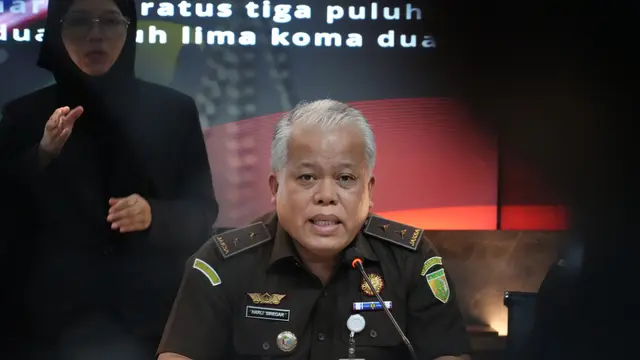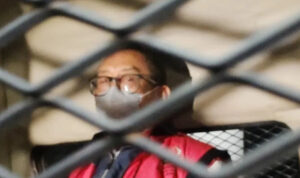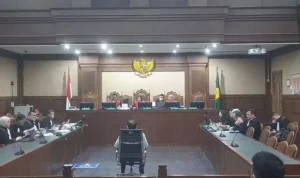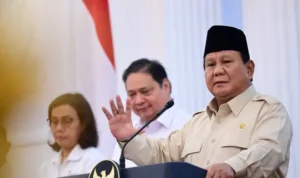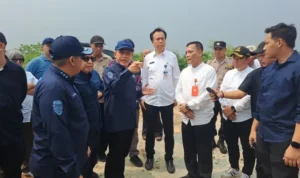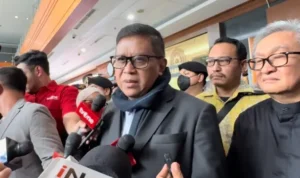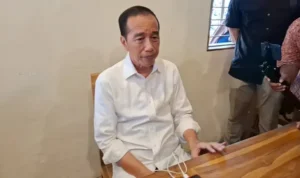INDONESIAUPDATES.COM, News En – The Indonesian Attorney General’s Office (Kejaksaan Agung) has taken a significant legal step by filing a cassation appeal against the recent acquittal of several corporations involved in a corruption case. The case concerns the illegal provision of export facilities for Crude Palm Oil (CPO) and its derivatives. The appeal was filed on March 27, 2025, following the controversial decision made by the court.
Background on the Case
On March 19, 2025, the Jakarta Corruption Court issued a verdict that cleared several major corporations — Permata Hijau Group, Wilmar Group, and Musim Mas Group — of the charges related to the illicit facilitation of CPO exports. Despite being found guilty of the alleged crimes, the court ruled that their actions did not constitute criminal offenses, resulting in what is known as “ontslag van alle recht vervolging” — an acquittal.
This decision was met with widespread criticism, with many questioning the fairness and transparency of the judicial process. The Attorney General’s Office has since filed a cassation appeal in a bid to challenge the ruling and ensure that justice is served.
Corruption Allegations and Investigation
The case first emerged from an investigation into bribery and corruption at the Central Jakarta District Court. It was revealed that the court’s ruling might have been influenced by bribes amounting to approximately IDR 60 billion. The bribes were allegedly offered to Muhammad Arif Nuryanta, the Chairman of the South Jakarta District Court (PN Jaksel), in exchange for favorable rulings for the corporate defendants involved in the CPO export case.
The Kejaksaan Agung’s investigation uncovered evidence linking several individuals to the bribery scheme, including judges, court officials, and lawyers. Among the arrested suspects were Arif Nuryanta, Wahyu Gunawan, Marcella Santoso, and Aryanto. The suspects are now facing charges of bribery and/or gratuities in relation to the handling of cases at the Central Jakarta District Court.
Legal Actions Taken
Following the uncovering of evidence, the Attorney General’s Office conducted raids at multiple locations in Jakarta and detained the suspects. The individuals involved are facing serious charges, and the Kejaksaan Agung is determined to pursue justice by challenging the acquittal in the cassation court.
In addition to the cassation appeal, the Attorney General’s Office has also pressed for further legal action against the corporations involved, including financial penalties and a commitment to restitution for the losses incurred by the state.
The ongoing legal battle surrounding the CPO export corruption case highlights the complexities of corporate malpractice and corruption within Indonesia’s judicial system. As the Kejaksaan Agung pushes forward with its cassation appeal, all eyes are on the legal outcomes that could shape the future of corporate accountability in Indonesia.
Frequently Asked Questions (FAQ)
1. What is the case involving the Indonesian Attorney General’s Office (Kejaksaan Agung)? The case concerns the alleged corruption of several corporations involved in the illegal provision of Crude Palm Oil (CPO) export facilities. The Indonesian Attorney General’s Office filed a cassation appeal against the acquittal of these corporations, after a controversial court ruling in March 2025 cleared them of all charges despite evidence suggesting their involvement in corrupt practices.
2. Who are the corporations involved in the CPO export corruption case? The corporations involved in this case include Permata Hijau Group, Wilmar Group, and Musim Mas Group. These companies are major players in the palm oil industry and were accused of participating in corrupt practices related to the facilitation of CPO exports.
3. What was the outcome of the trial in March 2025? On March 19, 2025, the Jakarta Pusat District Court acquitted the three corporations, stating that while their actions were proven, they did not meet the criteria for criminal offenses. This ruling is known as “ontslag van alle recht vervolging” or an acquittal, which sparked controversy and led to the Kejaksaan Agung filing a cassation appeal.
4. What is a cassation appeal? A cassation appeal is a legal process in which a higher court (in this case, the Supreme Court) reviews the decision of a lower court. The Attorney General’s Office is requesting the higher court to overturn the acquittal and ensure that the corporations involved face legal consequences for their actions.
5. Why did the Attorney General’s Office file a cassation appeal? The Attorney General’s Office believes the trial court’s acquittal was unjust and that the corporations involved should be held accountable for their involvement in corrupt practices. The Kejaksaan Agung aims to challenge the ruling in order to restore legal integrity and ensure justice is served.
6. What role did bribery play in the case? Investigations revealed that bribery played a significant role in influencing the outcome of the case. It is alleged that judicial officials, including Muhammad Arif Nuryanta (Chairman of the South Jakarta District Court), received bribes to ensure a favorable ruling for the corporations involved in the CPO export scandal.
7. Who are the individuals arrested in connection with this case? The individuals arrested include Muhammad Arif Nuryanta (Chairman of the South Jakarta District Court), Wahyu Gunawan (court official at the North Jakarta District Court), and two lawyers, Marcella Santoso and Aryanto. They are accused of accepting bribes in exchange for influencing the judicial process.
8. What actions has the Kejaksaan Agung taken in response to the case? In addition to filing the cassation appeal, the Kejaksaan Agung has conducted raids and detained several individuals involved in the corruption scheme. They are currently facing legal charges for bribery and/or gratuities in connection with the case.
9. What are the potential consequences for the corporations involved? If the cassation appeal is successful, the corporations may face significant legal penalties, including fines, restitution, and other sanctions. The Kejaksaan Agung has called for these companies to be held financially accountable for their actions.
10. How does this case reflect on the Indonesian judicial system? This case highlights concerns about corruption within the judiciary and the challenges in holding powerful corporations accountable. The Attorney General’s Office’s efforts to challenge the acquittal aim to restore public trust in the legal system and send a message about the seriousness of tackling corporate corruption in Indonesia.
FOLLOW INDONESIAUPDATES.COM ON GOOGLE NEWS

